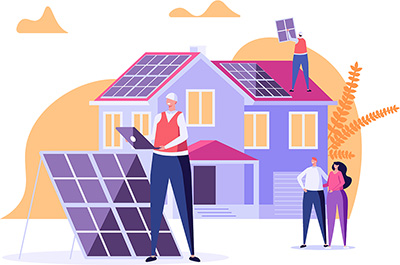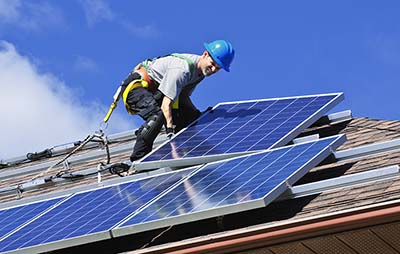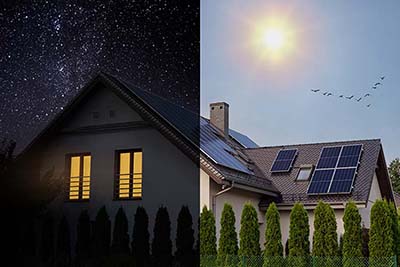Click below to listen to our Consumerpedia podcast episode to learn more about your options, how to find an installer, how to pay for a solar project, and how much you could really save on electricity.
Solar-energy technology continues to advance in ways that can greatly benefit homeowners. Panels sold today cost considerably less than those available just five or six years ago, yet produce more electricity. These efficiency gains mean most families can install fairly small projects to cover all their electricity costs.
But the high upfront cost for solar projects remains a big obstacle for most families: A typical-size system for the Washington area runs about $15,000. If you stay in your home for several years, a generous federal tax credit, various local government and utility incentives, and lower electricity bills will eventually add up to recoup those upfront costs.
Your payback period depends on where you live. In the District, which has strong incentive programs, most homeowners will break even within just three years—making solar in D.C. a no-brainer. In Maryland, it’ll take about eight years. But in Virginia, where local incentives are small, payback won’t happen for 12 years. After that, your system will provide free electricity for many more years.
You can finance the high initial cost with a loan from an installer or a home equity line of credit. But that can add thousands of dollars in interest charges to your total cost.
Alternatively, if you live in D.C. or Maryland, you can sign on with a company that supplies equipment via a lease or similar arrangement in exchange for paying it a flat monthly fee—typically $40 to $100 per month—and letting it collect the tax credit. (Solar leasing isn’t yet available in Virginia.) In general, we don’t think these arrangements represent good deals for most homeowners.
Start by making sure your abode and its roof are good fits for solar. Homes with roofs that have unobstructed southern exposures are the best sites. Because solar panels last for 25 years or more, and because your shingles will need equal longevity, ask a good roofer if you should replace shingles where you plan to install panels.
Thoroughly vet solar contractors you consider. Skeptically review any marketing materials—our undercover shoppers found some companies promise overly optimistic scenarios. Carefully read the contract and ask the company to clarify anything you don’t understand.







